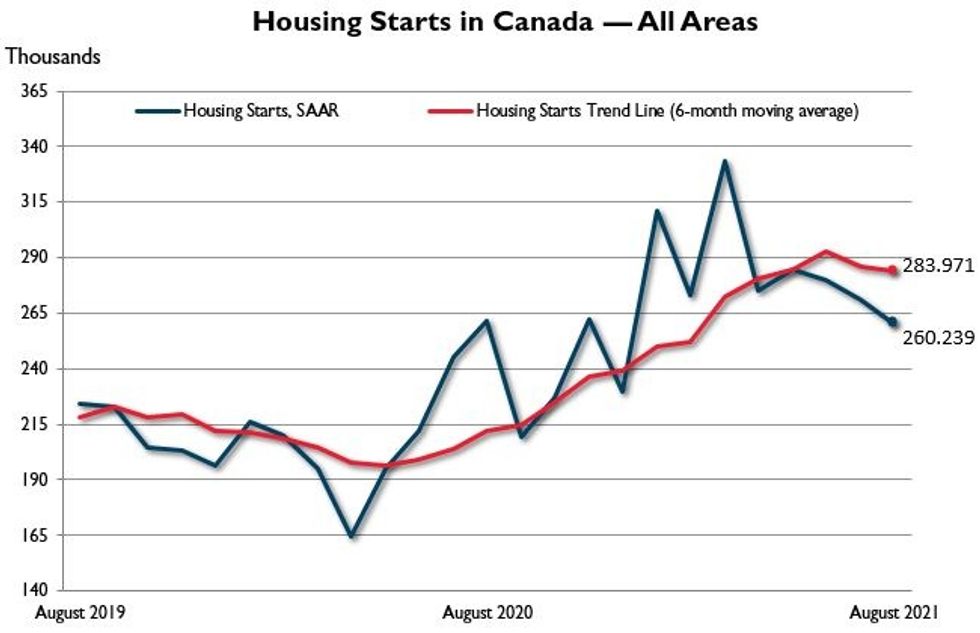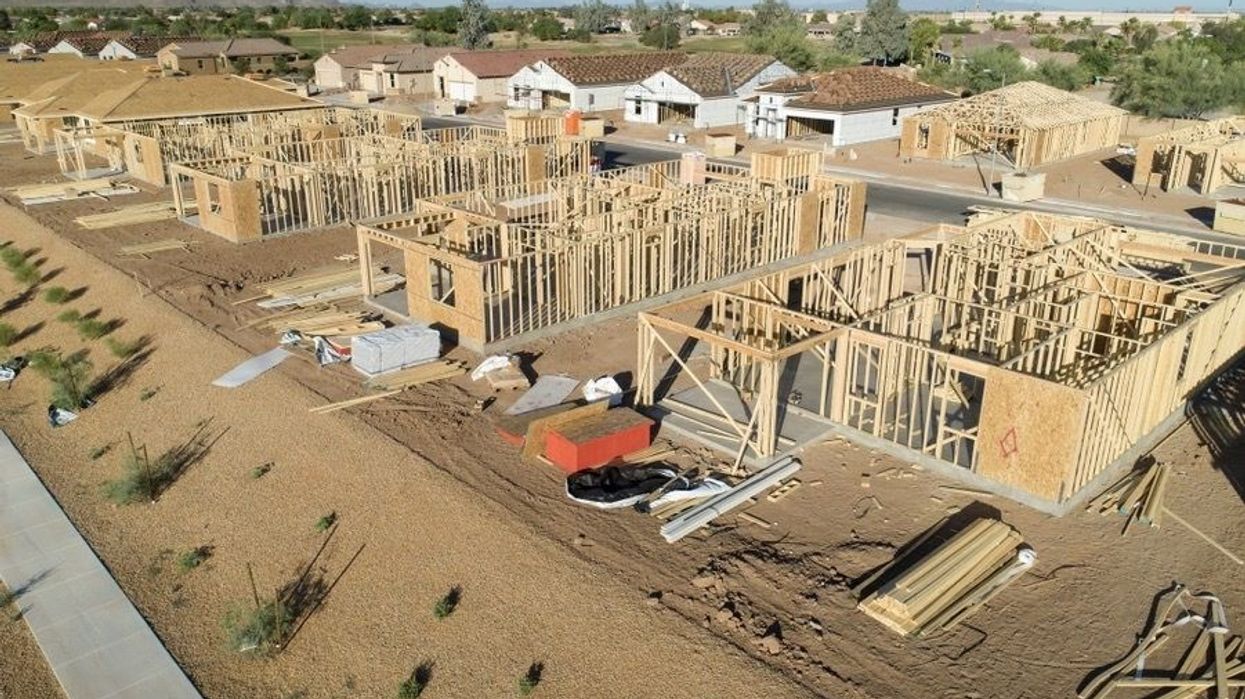Almost keeping in line with the gradual cooling of temperatures in August -- perhaps a signal of the coming fall season -- new housing starts in Canada also slowed last month.
Recent data from Canada Mortgage Housing Corporation (CMHC) shows that the annual pace of housing starts in August slowed compared to July. However, starts were still higher than typical levels and not far off from the record peak recorded earlier this year.
The housing agency says the trend in housing starts, which is a six-month moving average of the seasonally adjusted annual rate (SAAR), dipped to 283,971 units in August, down from 286,076 the month before.
While a decline in new starts might not sound like the best news for Canada's already struggling housing inventory levels, CMHC says activity is higher than usual and only 16.4% below March's peak, when the construction of 334,759 new units was started.

In comparison, the standalone monthly SAAR of new housing starts for all areas in the country was 260,239 in August, down 3.9% from July. Of those homes, 235,782 units were in urban areas, down 4.7% from a year before.
CMHC emphasized that it uses the trend measure to complement the monthly SAAR of housing starts to account for considerable swings in monthly estimates and obtain a more complete picture of Canada’s housing market.
READ: Home Sales in Canada Remained Virtually Unchanged Between July and August
CMHC said analyzing only SAAR data can be misleading in some situations, as the multi-unit segment essentially drives the market and can vary significantly from one month to the next.
“The six-month trend in housing starts declined from July to August, with total starts continuing to retreat from their highs earlier this year,” said Bob Dugan, CMHC's chief economist.
“In August, both single-detached and multi-family SAAR starts were lower in Canada’s urban areas, resulting in a decline in overall SAAR starts for the month. However, on a trend and monthly SAAR basis, the level of starts activity remains elevated by historical standards. Among Montreal, Toronto and Vancouver, Toronto was the only market to register growth in total SAAR starts in August, due to modest growth in the multi-family segment.”
The annual rate of urban starts for apartments, condos and other types of multiple-unit housing projects dropped 5.7% to 173,120, while the rate of single-detached urban starts fell 2% to 62,662. CMHC also estimated rural starts at a seasonally adjusted annual rate of 24,457.
While new home building has been slowing, a hefty slew of housing is anticipated -- a promise made by each major political party as part of the upcoming federal election. Though, we likely won't see the new inventory hit the market for at least a few more years.
If re-elected, the Liberals have vowed to build, preserve, or repair an additional 1.4 million homes in four years to address supply constraints. The party has also earmarked $4 billion to help large cities speed up their housing plans, targeting 100,000 new middle-class homes by 2024-2025 in addition to $2.7 billion to build or repair more affordable homes over four years.
If elected, the Conservatives say they will build one million homes in the next three years, while the NDP says it will create at least 500,000 affordable housing units over ten years, half of which will be completed in the next five years. This includes social housing, community, and non-market housing.





















